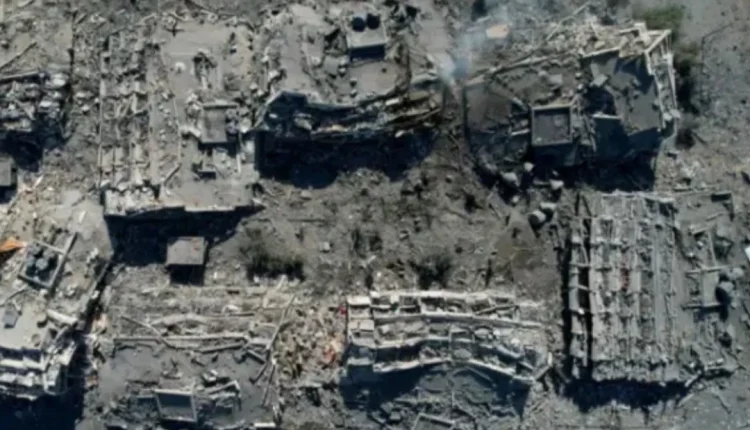“Hashd”: Israeli occupation continues “Slow Massacre” in Gaza despite ceasefire
Dr. Salah Abdul Ati, Director of the International Commission for Supporting the Rights of the Palestinian People (Hashd), stated that the Israeli war on Gaza has not truly stopped despite the announcement of a ceasefire.
In a statement to the Palestinian Shehab News Agency, Abdul Ati added that the Israeli entity continues a slow genocide through siege, starvation, and the blocking of aid, amid the collapse of the healthcare system and the ongoing policy of slow death affecting more than two million people in the Gaza Strip.
He further explained that the occupying authorities prevent the opening of the Rafah crossing and allow less than 20% of the required aid, worsening famine and causing daily casualties from hunger, disease, and intermittent shelling. The occupation also obstructs medical evacuations for over 15,000 injured and sick people needing treatment outside Gaza.
Abdul Ati pointed out that the Palestinian Ministry of Health recorded, from 7 October 2023 to 25 October 2025, approximately 68,519 martyrs and 170,382 injuries, including 93 martyrs, 324 injuries, and 464 bodies recovered since the ceasefire announcement, with 220 additional martyrs confirmed after completion of data collection.
He warned of an imminent environmental and health disaster due to the accumulation of over 65 million tons of rubble, thousands of unexploded bombs and rockets, and war remnants, while the entry of equipment and machinery needed to clear debris and recover bodies is blocked, turning Gaza into a ticking environmental and humanitarian bomb threatening civilians.
Abdul Ati emphasized that the Israeli entity continues to prevent the entry of journalists, technical teams, equipment, tents, and essential supplies, deepening famine and the humanitarian collapse.
He condemned the U.S.-backed Israeli campaign against UNRWA, describing it as an extension of a genocidal war aimed at erasing the refugee issue and stripping Palestinians of international protection.
Abdul Ati highlighted the Commission’s appreciation for the efforts of mediators, particularly the Arab Republic of Egypt, and the statement from the Palestinian factions’ meeting in Cairo, considering it a step toward forming a unified Palestinian vision for managing the transitional phase in a spirit of national unity and rejecting any external guardianship over Gaza.
He called on the international community, the United Nations, and states party to the Geneva Conventions to fulfill their legal and moral responsibilities by ending the occupation and holding Israeli war criminals accountable, affirming that ending the occupation and prosecuting its leaders is the true pathway to just peace.
He stressed the urgent need to lift the siege and open all crossings immediately, deliver aid without restrictions, allow medical evacuations, bring in equipment, tents, and essential supplies, and permit the entry of journalists and technical and humanitarian teams, calling for enabling UNRWA to perform its humanitarian mission with sustainable funding and without interference.
He also demanded that occupation leaders be held accountable before the International Criminal Court and national courts for crimes of genocide, and that sanctions be imposed on the occupying state, including boycotts.
Finally, he called for comprehensive Palestinian national unity, an end to division, unified management of the reconstruction and early recovery phase based on justice and accountability, the establishment of a democratic political system, and a unified strategic leadership to ensure coordinated efforts toward return, self-determination, and the establishment of an independent state with Al-Quds as its capital.

